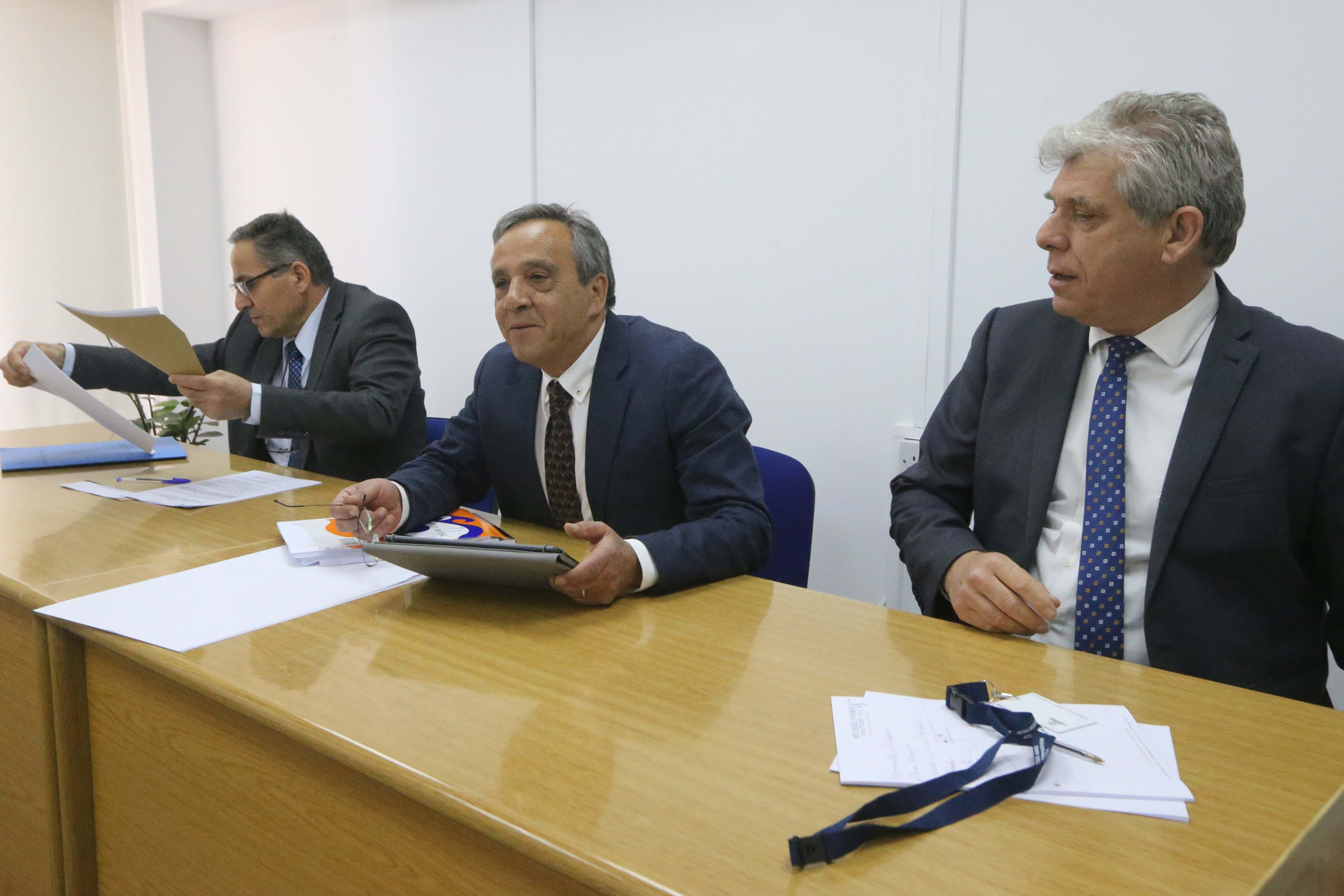Up until January of this year, no certification was required that a vehicle must not be subject to recall in order to have it registered, the panel investigating the Takata airbags affair learned on Thursday.
The three-member committee continued its public hearings, questioning the union of car traders (Pasea) about the procedures involved when it comes to the recall of vehicles or vehicle parts.
Pasea’s Charalambos Kolokotronis said that, since January 2025, under an amendment to the law relating to the certification of vehicles, the government has had to fully comply with EU Regulation 2018/858.
The law has now added changes to checks made for single-vehicle approvals and has granted expanded authorities to the Road Transport Department (RTD), so that the department requires a certification that a vehicle is not subject to a recall or, if it is subject to one, that the issue has been resolved.
“Since then, no vehicle in the Republic of Cyprus is registered if it is under recall,” Kolokotronis told the committee of inquiry.
Regulation 2018/858 concerns the approval and market surveillance of motor vehicles and their trailers, and of systems, components and separate technical units intended for such vehicles.
The same witness said that from May 2004 to September 2020 the single-vehicle approval (SVA) system was in force. The SVA system checks if a vehicle imported from outside the European Union meets EU standards. If it does, it will then go through an MOT – a mandatory vehicle inspection conducted to ensure road safety and compliance with environmental standards.
Asked whether the SVA process checked for the presence of a Takata airbag, Koloktronis said no.
Nor does the MOT inspection have the authority to check for recalls.
“It’s up to the owner of the MOT station to browse dealership websites and alert a customer if a recall is in force,” he said.
In his own testimony, Andreas Antoniou, another member of the Pasea union, recalled what was said during a session of the House transport committee in late 2024.
At that session, attended by the transport minister and the head of the RTD, two importers of brand-new cars had “admitted that for the past 20 years some 40,000 new cars were never subject to recall, and that the regulatory authority never checked them [the importers]”.
Among these 40,000 vehicles was the car driven by Kyriacos Oxinos, killed when a faulty airbag exploded during a road accident in 2023.
“Up until today, what has the regulatory authority done about these 40,000 cars?” asked Antoniou.
Andreas Kitsios, also a member of Pasea, said the SVA system is the official and lawful means of classing vehicles imported from non-EU countries.
All witnesses told the panel that the responsibility for vehicle recalls belongs with the manufacturer, but also the RTD must ensure there is a mechanism in place to keep track of recalls processes.
Kolokotronis said that between 2020 and 2024 there was no central database or a mechanism for checking up on recalls.
“There was no [government] circular or any instructions concerning the obligation to submit a certification that a vehicle is not subject to recall,” he asserted.
Prior to 2020 the issue of recalls had come under the RTD and the local representatives of vehicle manufacturers.
But after 2020, when Regulation 2018/858 came into force, “there was no institutionalised framework or a circular with instructions on how to implement the recalls process.”
To illustrate the point, Kolokotronis cited the case of the Honda dealership in Cyprus.
He said Honda approached the Pasea union about three years ago, asking them to work together on recalls.
“We came to an arrangement with Honda and then we reached out to the RTD, suggesting that the MOT not get approved if a recall process was not complied with.”
But these were private initiatives, not the norm, Kolokotronis said.
Not acknowledging that full responsibility lies with the manufacturer, when it comes to second-hand imports, amounts to a violation of the EU regulation regarding the agreement between the EU and Japan.
And the cost of replacement/repair should solely burden the manufacturer, the witness added.
Kolokotronis proposed that if a manufacturer refuses to address recalls, the vehicles should be excluded from the market “rather than penalising independent importers”.
Also, in cases of non-cooperative manufacturers, the affected vehicles should be prohibited from circulating on the roads.
“Official dealers immediately get notified by the manufacturer, whereas independent importers do not have access to this data.”
The date for the next public hearing has not been set. However committee chairman Michalakis Christodoulou said the next session would hear from police officers who examined accidents caused by faulty car parts. The families of victims would also be invited to testify.
Christodoulou said the intention is to wrap up the public hearings by the end of May.






Click here to change your cookie preferences